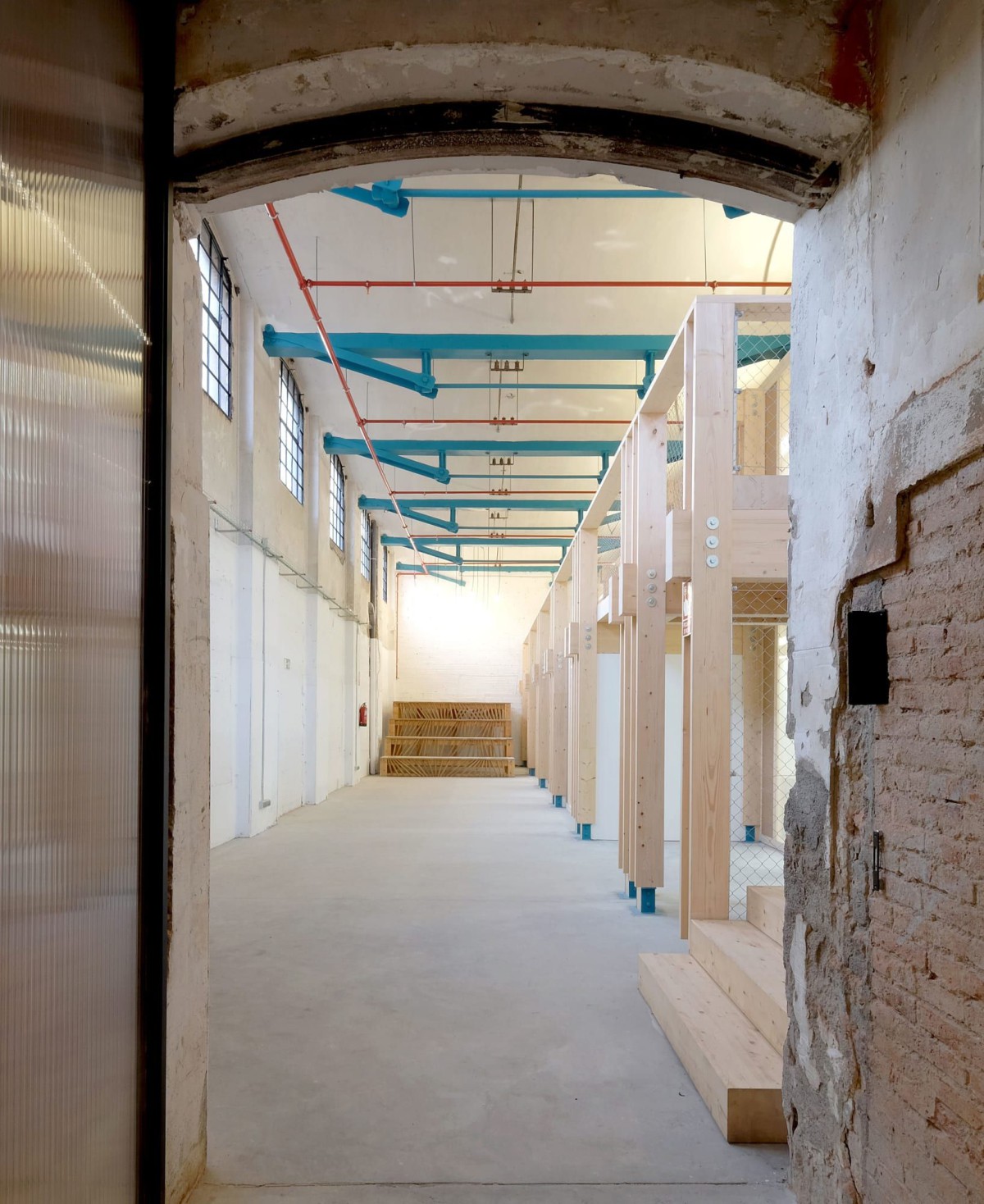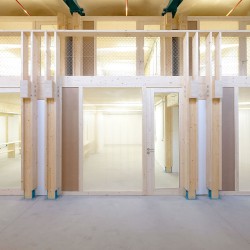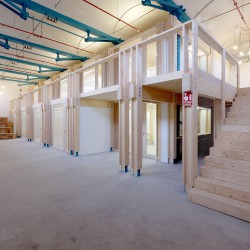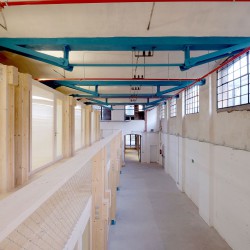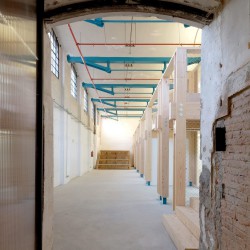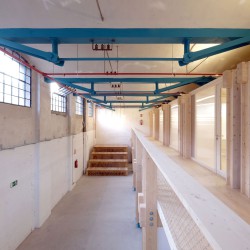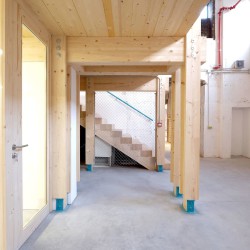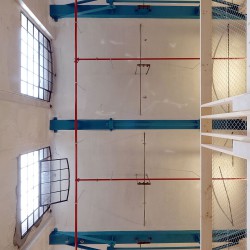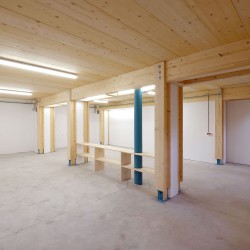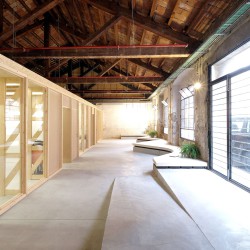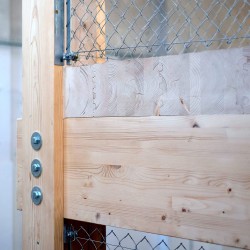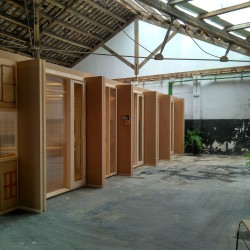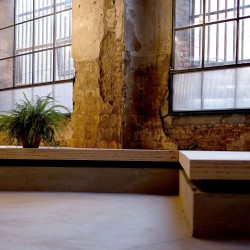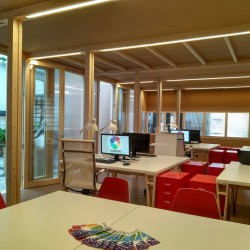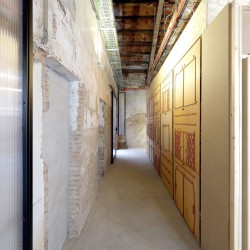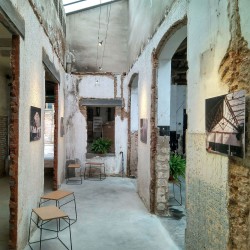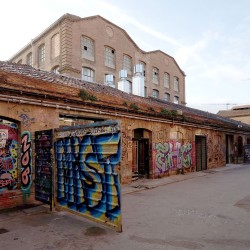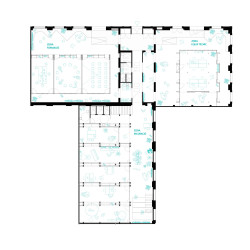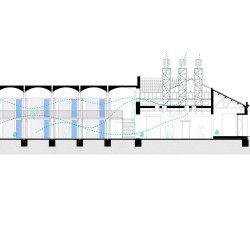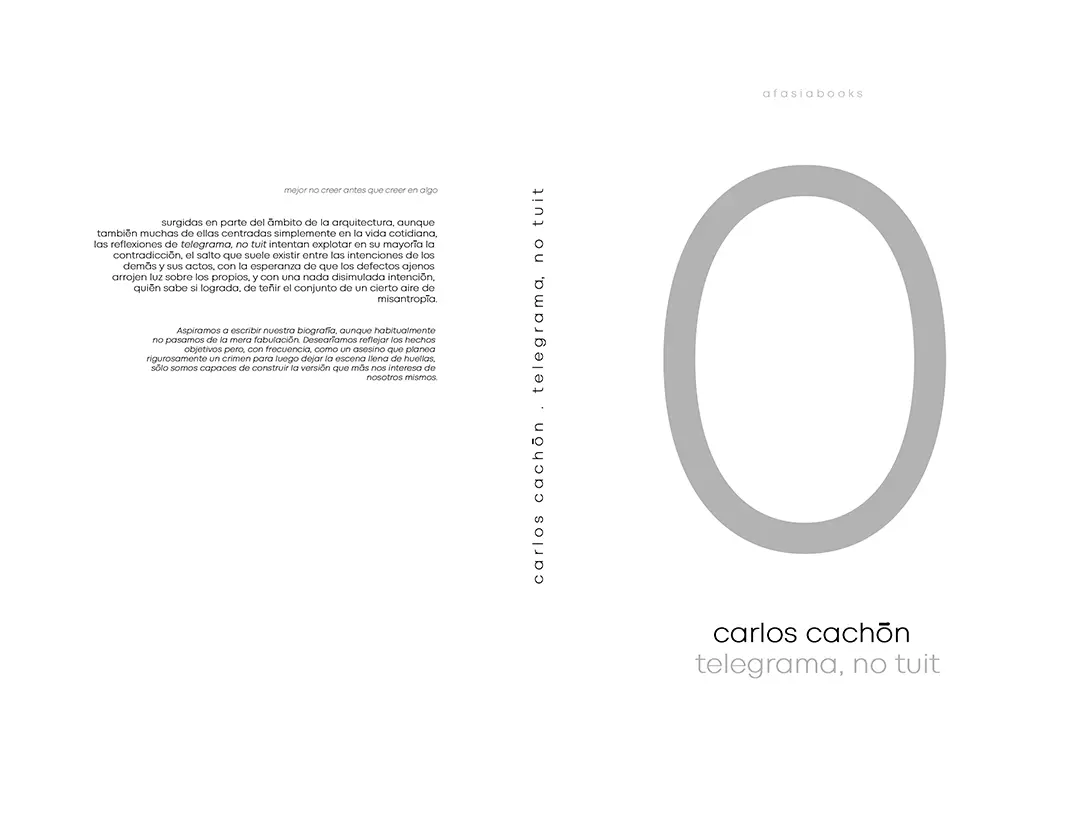LACOL . photos: © LACOL
Coòpolis is a holistic facility to promote and boost the social and cooperative economy in Barcelona. It wants to be a space of reference for all those initiatives of the social, cooperative and community economy that require training, advice or support, establishing a new pole of economic promotion in the city. Phase 0 consists of carrying out a first intervention to enable a temporary space on the ground floor of block #8 of Can Batlló.
Block #8 is the central building of the old industrial area of Can Batlló, which dates from 1880. Coòpolis is located in two perimeter spaces formed by masonry walls, wooden trusses and tile roof, and a nave inside formed by a structure of pillars, iron beams and ceramic vaults. The main strategies of the project involve recognizing the pre-existence by trying to take back the most significant elements and introducing new construction carefuly and respectfuly. The recovery of existing elements and the attention to the particular morphology of the building bring identity to the space, in line with the industrial past of the site. Actions on most of the building’s envelope are minimized, with only occasional repairs to existing roofs and carpentry, which minimizes the cost of refurbishment. The new elements, of dry construction in line with the provisionality of the project, are little invasive and of easy disassembly. However, a large space of almost 1,000 m² is achieved where semi-outdoor spaces and enclosed spaces coexist, making it easier for activities to take place in any of the spaces for several months of the year, leading to meetings and relationships between the different people participating in the project.
The project focuses on the construction of different wooden boxes and modules to accommodate the different activities of the equipment. The new spaces are the ones responsible for ensuring comfort. These design strategies and the choice of materials (wood and reused materials) make it possible to reduce the cost of the action and generate a lower environmental impact.
In order to facilitate the natural ventilation of the space, three solar chimneys have been incorporated that passively improve the circulation of the indoor air.
The project has three different spaces:
offices In the corner of the space there is a wooden cubicle of about 60 m² with 8 work spaces for the organizations and technical people of the project. This space has a meeting room and also serves as a point for personalized attention.
classrooms In the side space there is a wooden cubicle of about 80 m² consisting of 3 classrooms. Built through FJY beams and plywood recovered from the same enclosure. Each classroom consists of about 30 m². The space is very close to the street and easy to access.
incubation area The 9 incubation modules are located in the interior space. Formed through a ground floor and first floor structure of wooden pillars and beams, and slabs of wooden pieces with finger joints. The modules have between 20 and 30 m² and are used for those cooperatives that are starting their activity. It also has toilets and a kitchenette.
_

